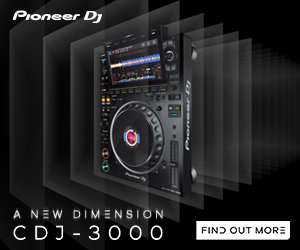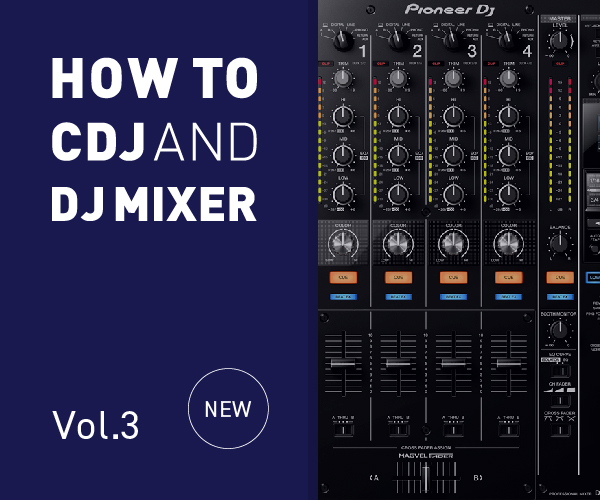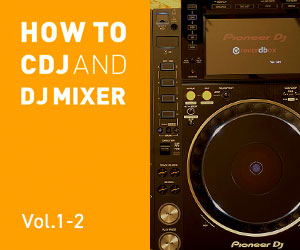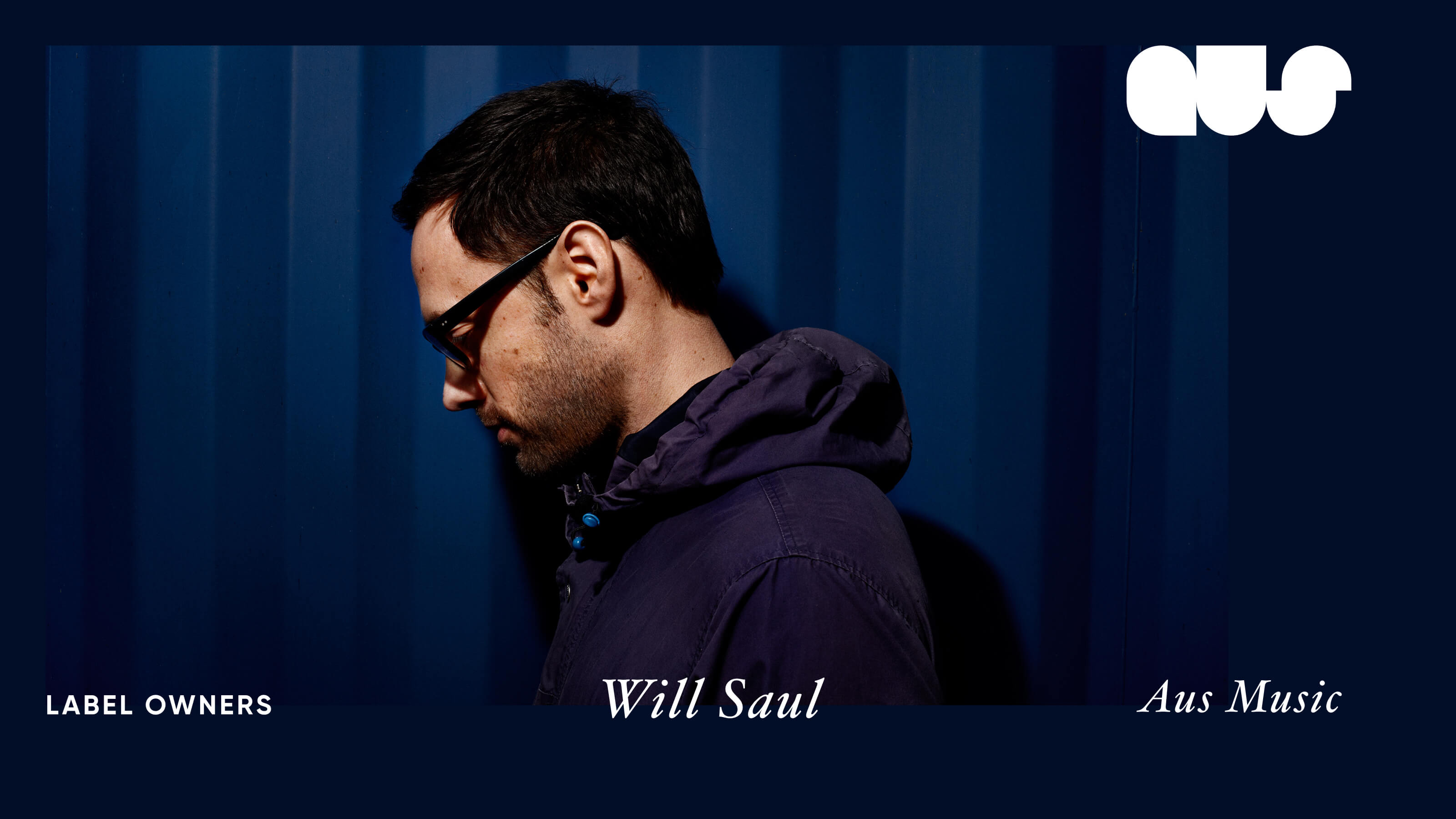
INTERVIEW
Label Owners: Will Saul – “Aus Music”
Text & Interview : Datwun (House Not House)Edit : Hiromi Matsubara
2019.9.11
One of the UK house headquarters after Post-Dubstep era
On Friday 13th September, the Tokyo-based record label and events crew House Not House are bringing AUS music label head, DJ KICKS curator, and overall legendary producer and DJ, Will Saul to Omotesando Vent. In the lead up to the party, HNH co-founder Dom “Datwun” spoke to Will about AUS, the state of music in the internet age, the trials and tribulations of A&R work and more!
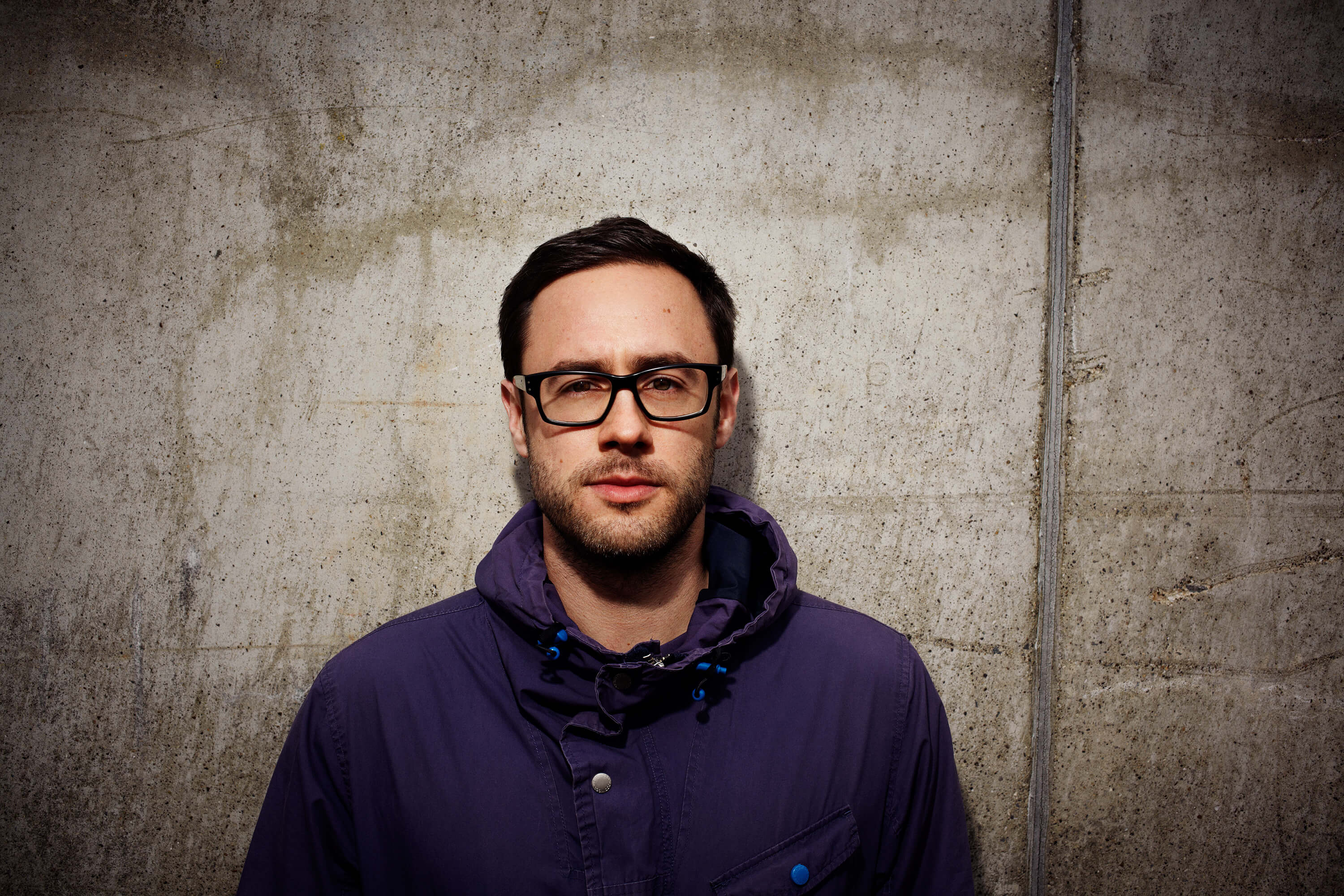
ーー First of all, I just wanna say, thank you so much for taking the time to talk to us, I know you must be really busy.
Will Saul: No No, I really appreciate you guys wanting to interview me in the first place, so don’t worry about that!
ーーWell, we wanted to introduce you from our end. So before I get into the questions, let me talk a little bit about who we are and what we do. We are House Not House, that’s me Dom (Datwun), and another Brit called Frankie (Frankie $). We met in university, studying Japanese and we both moved out here about six years ago. We were actually both more into bass music like dubstep, funky, grime, stuff like that. About four years ago, we got really into the London deep tech scene – people like Mark Radford, labels like Audio Rehab and Audiowhore – coming more from the bassier side of things it was a style of house music which really resonated with us, so we started House Not House in order to push that kind of music here in Japan. We did that for a number of years, bringing out artists like Mark Radford, RS4, Aaron Verone, as well as artists from the Birmingham House & Bass scene like Tom Shorterz. Unfortunately the deep tech scene dissipated rather quickly, so we took to doing more local parties, and you’re actually the first big, international booking we’ve done in a few years.
Will Saul: Well I’m honored!
ーーAnd we are so honored to have you because actually, there was a time where we were both a bit snooty about house music! It was when a lot of people were giving up dubstep and those sounds to go in a housey direction, and at 19 years old it just seemed way too tasteful!
Will Saul: I was actually the same myself, when I was about the same age! But I ended up getting dragged into house music through working in record shops. Up until that point I was really just into breaks, hip hop, broken beat, new jazz and that sort of thing.
ーーHaha! You’re actually jumping the gun a bit, as you’d mentioned that in a recent Phonica interview and I want to ask you about it later… So in this time, when we were almost ‘anti-house’, Frankie found your FACT mix when we were living out in Kyoto, and he sold it to me as “house music, but really really good”!
Will Saul: *laughs*
ーーAnd we played that constantly! It soundtracked nights drinking by the Kamo river, and parties on the peak of Daimonji mountain. And without knowing anything about house music, I just knew that “I like THIS”. So that mix, as well as releases like Your Words Matter, Loss, Through Motion, those were all really my introduction to house music, and they were some of my favorite tunes long before I knew anything about house, or admit that I liked house music!
Will Saul: That track, Your Words Matter, I got send that by David (Ramadanman/Pearson Sound) and Harry (Joy Orbison/Joy O) when I was actually in Japan playing at the Labyrinth festival! I remember getting sent it, and at the time it definitely sounded like nothing else out there at all. I played it to a couple of the other guys at the festival, like Peter Van Hoesen, and they were like “What the fuck is that!?” And I remember saying “yeah, it kinds of sounds like garage? But it’s not?” It just sounded so totally unique at the time. So I’ve got quite fond memories of that tune, because I was in a chalet in the mountains in Niigata when I got it!
ーーThat’s an amazing story! Did you play it at Labyrinth?
Will Saul: I do think so, yeah!
ーーWell it’s a banger…
Will Saul: It is, but at the time when that came out, people were definitely like “ooh, this is a bit… different…” It’s still sounds pretty unique, but it was definitely a fresh sounding tune at the time.
ーーWell that segways nicely into my first question! Would you mind indulging our nostalgia for that mix and that whole era, and tell us what you remember of putting that mix together?
Will Saul: Hmm, I remember that it felt like a special time. We had a little window of what I’m going to call ‘post-dubstep’, where basically there were a lot of people writing house music who did not come from house music. That always gives unique and fresh results in any context, when someone comes from a different scene and tries to make another genre of music.
And in a way that spawned a whole genre which was ‘post-dubstep’, which was basically dubstep producers, or people who grew up going to FWD and other dubstep nights making house music. And we did capture a lot that nascent sound on AUS with the Ramadanman and Midland stuff, the Appleblim stuff, then into Joy Orbison, Midland, SCB… Then later it became a bit more straight-up house, with Dusky, Leon Vynehall and Bicep. But still it was bass driven house music, it was people who were writing house music with drops essentially, rather than being very linear like a lot of house and techno, though that’s also of course great because the tracks become more hypnotic.
But that more bass driven, drop driven house music that we were releasing on AUS was totally fresh and unique at the time, and was definitely a new thing. And without meaning to be massively “old guy nostalgic”, I don’t feel there’s been as strong a new thing /since/ then really.
ーーYou’ve got a real knack for this, because you just stole my next question!I was going to say that, it seemed to me like that whole era of post-dubstep was kind of the beginning of the end in terms of UK bass and underground club music having one dominant genre at the cutting edge, moving things forward. And it was really the beginning of this current moment of cross-pollination and scenes defined more around a shared aesthetic or shared vibe.
So I was going to ask, have you been inspired by any particular genres or sounds over the last few years?
Will Saul: In a word, no. Over the past few years it’s felt a bit like everything’s adrift. You’re right, there are a lot of shared aesthetics, but in my opinion there aren’t really any new things happening, it feels like a period where people are consolidating. Of course there are lots of pockets of new scenes popping up the whole time, but nothing that really pushes through and captures the attention of a country, a scene, and then in turn, the world. I wouldn’t say it’s “stagnant”, because there’s lots of great stuff out there, but it doesn’t feel like anything really new and interesting is happening on a major scale.
ーー I agree. I do wonder if the conditions for that sort of innovation don’t really exist any more, because of the sheer abundance of music, and the lack of space between genres. For example, think of something like Speed Garage, which mixed jungle and American garage house, and it spawned this whole mutant thing, morphing into 2-step, grime, dubstep etc. And I don’t know how many productive combinations like that are left…
Will Saul: Very true… Look, I don’t think it’s necessarily a bad thing overall. And I’d be very surprised if something genuinely new doesn’t appear again, that’s the beauty of music – we’re constantly surprised, and people’s creativity knows no bounds. But I think you might be right, in that it might be more of artist led thing of “wow, that’s an amazing sounding new artist”, as opposed to a whole new scene bubbling up that takes the world by storm…
ーーI definitely agree! So my next two questions are a double whammy: are there any eras of music that you’re particularly nostalgic for, and on the flip side, are you as excited about music as ever?
Will Saul: Yeah! I’m definitely as excited about music as I ever was, and I wouldn’t say that I’m massively nostalgic. I’ve found it quite nice seeing the resurgence in Breaks over the last year or so, because that was really what I started my first label, Simple, around. So it’s nice to see that coming back, albeit in a much more open, musical, expressive way than when I was involved in the scene, which was very male-dominated and really a bit boring as a scene, not very experimental or open-minded. In a way I would have said that Breaks was a genre I was nostalgic for, but that nostalgia’s been quenched by the recent resurgence, which is definitely better than the first time around! Then again, the first time Breaks bubbled up, it hadn’t been done before. So that’s another prime example of things being recycled.
Sometimes I find myself wondering if all the easy access we have to music and culture and everything is a good or bad thing in general. Though I do think it will make for the development of young, interesting, amazing artists, referencing stuff that artists couldn’t reference growing up 20 years ago, because it was impossible to get access to it. What that probably means is a lot of amazing artists popping up, but almost impossible to create whole new genres, because everything’s everywhere, and always accessible.
ーーSo as a label head then, what is it you look for in an artist to sign?
Will Saul: I think I’ve always been into interesting hooks that resonate and stay with you. Inveriatably for me, that’s a melody, or a chord progression or a bassline linked to one of those. That’s what excites me. It can be an interesting groove, or an interesting sample, but fundamentally I’m always on the hunt for something that I think is memorable, and a hook that will stand the test of time, rather than some throwaway tracky stuff that you don’t really remember five minutes after you listen to it.
So I try and sign timeless music that really captures me and resonates with me, and I’ve got better and better at distilling that over the years. To begin with, I wouldn’t have been able to tell you what it was about a track that I particularly liked, or why I signed one track over another, but I’ve learned that with time.
ーーSee, what’s interesting to me about AUS is that, when I check out a new release, I never know what to expect in terms of genre, or even tempo. But once I’ve heard it, I always think “oh yeah, that makes sense /as/ an AUS release”, there’s definitely a certain ‘AUS sound’ which crosses different sounds. So maybe really the common thread between these releases is simply /your/ taste.
Will Saul: It has to be! That’s it in a nutshell. Since I’ve been lucky enough to be doing labels for a long time, first with Simple, then with AUS, you can feel that over the whole catalog. And it’s heartening to me that you can hear that across different styles and different artists!
ーーSo do ever come across a house tune, where you think “I love this, but I couldn’t release it on the label”?
Will Saul: Oh yeah, all the time! Although, usually it’s such an instinctive thing, whether you want to sign something. It’s become very immediate to me.
ーーSo what might it be about a tune that you like, but don’t want to sign?
Will Saul: Hmm… That’s a difficult one to answer! Because I think I’ve got quite wide taste, across different genres and subgenres… But I think it comes down ultimately to if I think something’s memorable enough. There are plenty of tunes where I think “I really like this”, but if it doesn’t have that stickiness… Though that’s of course very personal to me, so it’s not a criticism of someone else’s music.
ーーSo it all comes back again to your tastes.
Will Saul: Well I think that’s true for anyone who A&Rs for a label, really. It’s always an outpost of your own taste, but the difference is, I can be completely selfish with AUS. On the other hand, with !K7 where I also do A&R, I bring things to the table, but then it becomes about what the rest of the team thinks. Then there’s commercial aspect, if the team don’t think it can sell enough, or the sales pedigree of an artist isn’t going to be strong in relation to all the costs we have to incur to sell it, then all of those things are at play. They are at play with AUS too, but I don’t have to consider anyone but myself.
ーーThat leads into my next question nicely! So, you started Simple in 2003, and AUS in 2006, and you’ve always released on vinyl. In that time, vinyl’s gone through this transformation from being the industry standard, the only format for DJing music, through this historic slump where sales were decimated, and then more recently there’s been this huge popular revival. My question is, to what extent have your labels’ vinyl sales tracked these broader industry trends?
Will Saul: They definitely do track those trends, but I think you can buck them slightly when you have particularly strong releases. With AUS, we used to sell a /lot/ of vinyl in that post-dubstep era we were reminiscing about. We were probably selling a lot more records than most people, with those records like Joy Orbison’s, Ramadanmans’, Midlands’, and think that’s to do with how new and different they were. Everyone from so many different genres wanted those records, so they did particularly well.
But I often joke with myself that if I’d been running AUS 10 years earlier, I’d be a millionaire! Because in those days, back in the late 90s, you could sell 10,000 records without even thinking about it. Whereas when we started AUS, sales had already dropped off a lot. We still did well, with the bigger records selling maybe two, three, four thousand copies. But if we’d been doing it five, ten years earlier, we’d be selling in the tens of thousands and that would have been a different story!
ーーSo to return to something you mentioned earlier – being more into breaks, hip hop and broken beat – is it fair to say that your introduction to club music came more from working in a record shop and less from being a punter at clubs and raves?
Will Saul: No, I was definitely a punter from 16, 17 onwards. I grew up in the middle of nowhere in Somerset – which is where I live now again. I would go clubbing in London and up to Birmingham. I grew up in my teens listening to a lot of hip hop; there was only radio but you could lock into people like Pete Tong and people who had specialist radio shows on Radio One. I used to cycle to a record shop in Glastonbury – half an hour cycle from me. I bought some vinyl in there. Because it was in Glastonbry it was full of prog rock; Tangerine Dream and Can. I used to go Turnmills a lot when I was 17 or 18 and I found myself loving the back room which was the Chemical Brothers and there was an amazing resident called Carl Clark. Quite a lot of breaks, a really eclectic mix of stuff in there. I quickly found I was into that. I slowly got into broken beat and breaks in my early twenties. It wasn’t until I started working at Koobla – which was the forerunner to Phonica – that I was introduced to House music in a big way.
ーーYou mentioned broken beat, which I see as quite mature or jazzy or grown up.
Will Saul: Yeah some of it was a bit too jazzy for my taste. There was stuff like Bugz in the Attic There were labels like Maine Parade, all the Adam Freeland stuff – that was super experimental and interesting. Stuff like Cybeg, even Bushwacka’s label Plank, which was still quite tracky. Then you had people like Plump DJs, Meat Katie – that was much more blokey. Early Simple records was an amalgamation of breaks and broken beat. All the European broken beats, K7!, K&D Sessions, Nightmare on Wax, all of that leftfield stuff as well. That was all feeding into what I would classify as broken beat, breaks and leftfield. The dream was to get on the promo list. They would all mail out vinyl two or three months before the record came out – that was the holy grail. There was a company called Zonked that used to deal with Ninja Tune and Warp etc. Sometimes you would be getting thirty to fifty records a week. You still get fifty records a week but it’s all digital. I just block a lot of it to be honest with you! It was a lovely time, you had a whole stack of promo records to listen to; it was great.
ーーYou have a new album coming out – ‘Open to Close’. Can you tell us a little bit about what inspired you in creating it? And also more generally about how you approach albums versus creating an EP?
Will Saul: The concept behind it is in the name – representing what I would play from start to finish at a club condensed into ten tracks. Some of it can be played at home but it’s really just a representation of what I sound like in a club. I have done more conceptual stuff in the past, designed for home or in a car – my album in 2012 was much more considered and conceptual. This is basically me in a club in a nutshell.
ーーSo was it more like compiling a mix than creating an album?
Will Saul: Yeah I started just writing, what came out came out, I decided I just wanted the album to represent what I play out, so for example I would make something that represented this part of the night, this part of what I love about dance music, then just connected the dots. It’s a distillation of twenty years of buying and loving club music and playing out.
ーーFinally, I want to ask about Japan. You’ve played a few times, most recently Sankey’s. You played Origami, which is the club that turned into Vent, where you’ll play this time. I want to hear your experience of the club scene and the crowd and generally just your feelings about the country.
Will Saul: If not my favorite country to play, it’s one of my favorites, for me it runs right through Japanese culture, the attention to detail, sound systems are always second to none. People’s appreciation and attention to detail and the care that goes into everything, it seems like it matters to everyone. For someone travelling a long way to play it’s a special feeling. People coming to talk to you about things. The first time I went to Tokyo, I got completely lost and randomly stopped someone in the street to ask for directions and they literally walked me to where I was going and ended up chatting to me for ages!
ーーThanks so much for taking the time.
Will Saul: Looking forward to seeing you next week!
End of Interview
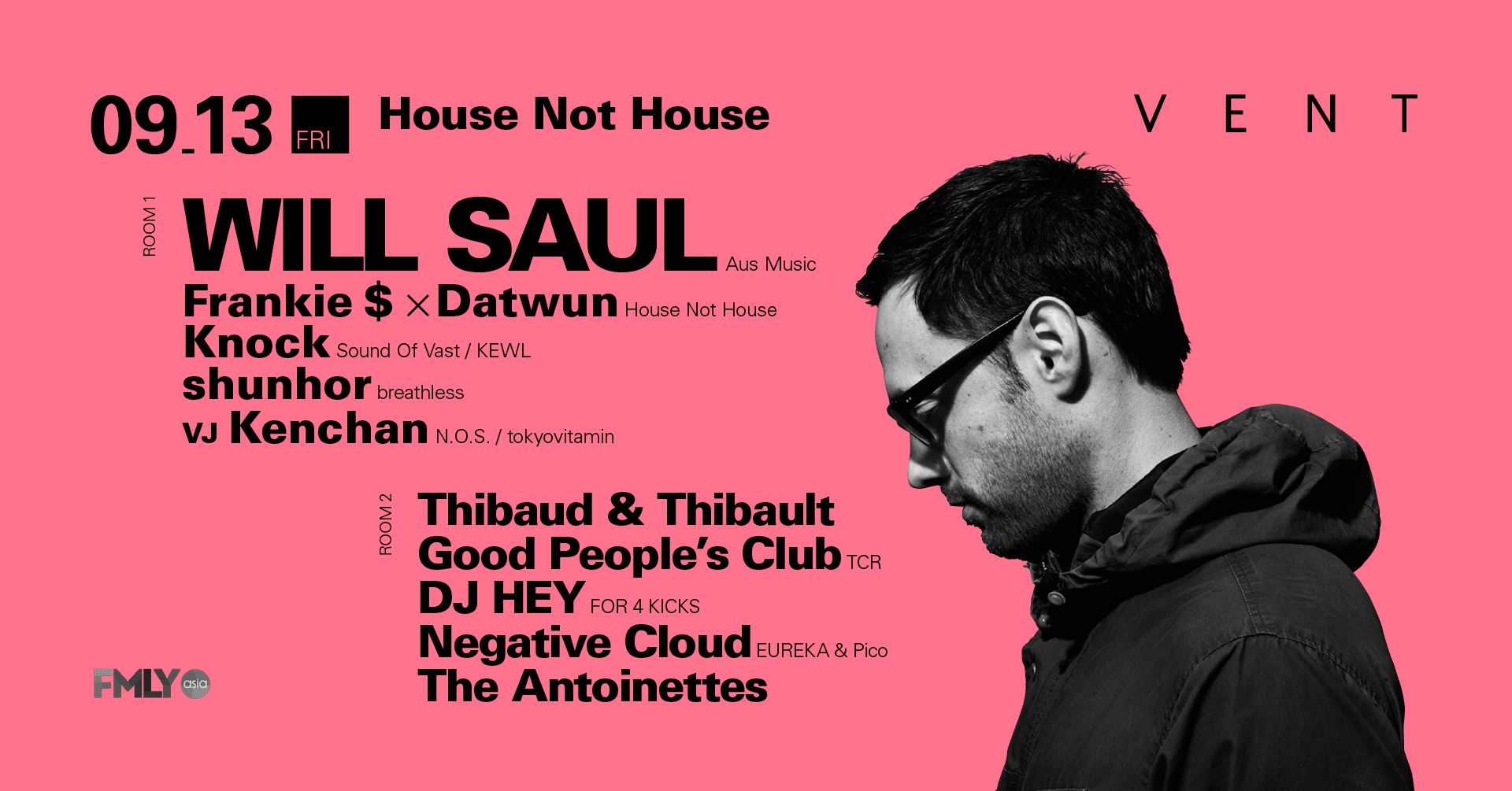
Date: 2019/9/13 (Fri)
Venue: VENT
Open: 23:00
ADV: ¥2500
[ADV ticket outlet: Resident Advisor]
FB discount: ¥3000
[FB event page: https://www.facebook.com/events/2126709790961389/]
Door : ¥3500
Line up:
[ROOM1]
Will Saul (Aus Music)
Frankie $ × Datwun (House Not House)
Knock (Sound Of Vast / KEWL)
shunhor (breathless)
VJ: Kenchan (N.O.S. / tokyovitamin)
[ROOM2]
Thibaud & Thibault
Good People’s Club (TCR)
DJ HEY (FOR 4 KICKS)
Negative Cloud (EUREKA & Pico)
The Antoinettes
A&R lead for the prestigious !K7 print, which has released brilliant artists like Bicep and Midland, and DJ Kicks curator, Will Saul will be performing at Omotesando VENT!
Will Saul has always been highly active at the forefronts of the scene, and as the founder of Aus Music and Simple Records, which both are highly reputable labels, he has been responsible for the discovery of a large portfolio of talented artists. Additionally, he serves as curator for !K7’s famous DJ Kicks mix series. Now he will be making his first appearance at VENT on September 13th!
Will Saul runs not one, but two labels: Aus Music and Simple Records. Combined, they have dropped over 150 releases, which include works by Carl Craig, Pearson Sound, Leon Vynehall, and Actress. Within those are Joy Orbison, Bicep, Midland, and George Fitzgerald, of which Will had a hand in helping them breakthrough into the music industry.
Demonstrating a natural talent for A&R, !K7 appointed Will head of their A&R in 2015, and as a result he’s helped contract many talented artists to the label, and has also been curating the famous DJ Kicks mix series. He is well-known for finding many exciting, new artists, giving a fresh boost to the contemporary electronic scene, as a whole.
As a DJ, he has been a resident at top clubs all over the world, including London’s The End and Amsterdam’s Studio 80, and as a label, he has been resident at Fabric in London. If that wasn’t enough credibility, Will has provided mixes for not only DJ Kicks, but also for BBC Radio One’s legendary Essential Mix!
He spent 20 years on the forefront of the electronic music scene, playing the tracks of top artists, and he is still delivering only the most very cutting-edge sounds, so be sure not to miss what will surely be an unforgettable night!
More info: VENT
http://vent-tokyo.net/schedule/will-saul/
※VENTでは、20歳未満の方や、写真付身分証明書をお持ちでない方のご入場はお断りさせて頂いております。ご来場の際は、必ず写真付身分証明書をお持ち下さいます様、宜しくお願い致します。尚、サンダル類でのご入場はお断りさせていただきます。予めご了承下さい。
※Must be 20 or over with Photo ID to enter. Also, sandals are not accepted in any case. Thank you for your cooperation.
Will Saul
『Open To Close』
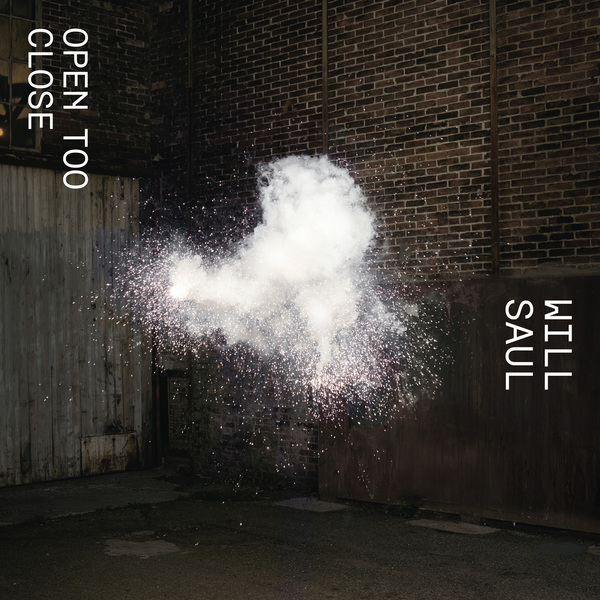
Release date: 2019/9/27
Label: Aus Music
Cat no.: AUSCD011D
Tracklist:
[Vinyl – AUS142]
A1: Openings
A2: Pingalatu
B1. Moorings
B2. Visions
[Vinyl – AUS144]
A1.Submerge
A2. Room 9
B1.One For Rex
B2. My Left Sock
[CD and digital]
1.Freya’s Theme
2.Room 9
3.Visions
4.Openings
5.Moorings
6.Pingalatu
7.My Left Sock
8.Submerge
9.One For Rex
10.Get Back Up




